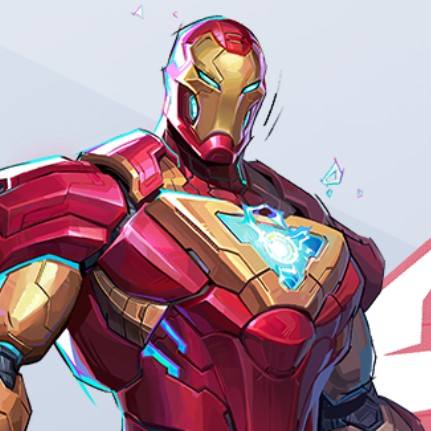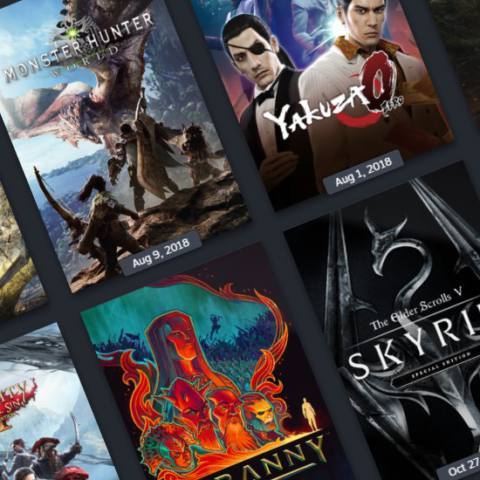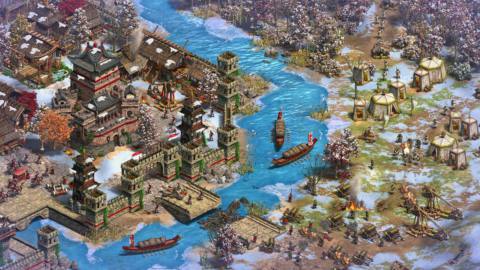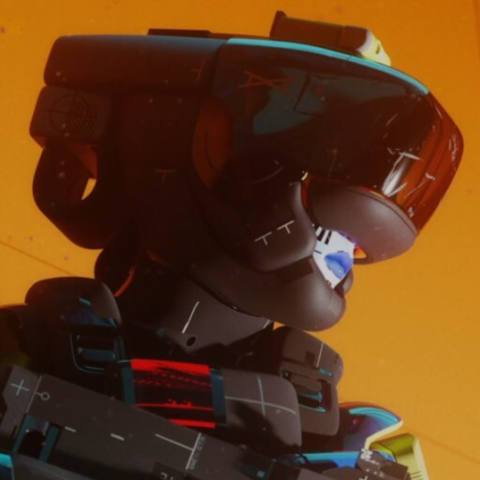Before jumping into Beastieball, I heard that it was a lot like the Pokémon games, with the addition of volleyball. But that idea was so weird to me that I had no idea what it would actually look like.
I thought I’d be joined by some critters in a game of volleyball, but I soon found out that I wouldn’t be playing at all. Instead, I would coach a team full of beasties to victory. This tore me up because not only was I looking forward to taking centre stage on the court, but I also felt bad for my beastie players, who were forced to compete for my benefit. Especially since if they got hit hard enough by the ball, it could knock them out.
Thankfully, the game excuses this forced labour pretty quickly by simply saying, “It’s ok. The beasties love it!” The beasties themselves did not corroborate this. Regardless, I carried on gathering beasties for my team guilt-free.
It’s nice that there are no immoral implications to owning beasties because they all do look adorable, and the world in which you find yourself is just as cute. It’s a pastel world full of autumnal colours, quaint villages, and boundless forests, the perfect place to play volleyball.
You get introduced to the rules of Beastieball pretty slowly. Before you’re unleashed onto the rest of the country, you compete in a small number of casual games either for fun or to research beastie abilities. The volleyball fights are 2v2 and turn-based. They feel very similar to Pokémon in that your beasties have and can learn different abilities that’ll help you beat your opponent at volleyball. Or just knock them out.
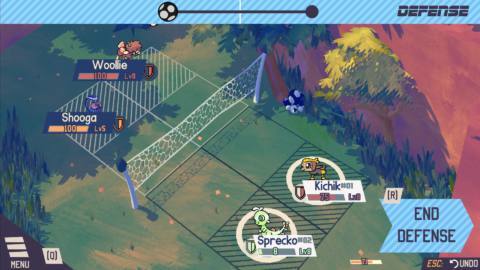
For example, my Kichik (who is also my number one player) has abilities like Basic Hit which can do 38-92 damage depending on the opponent and where they are standing on the volleyball court, and Quick Breath, which can restore 30 health mid-match.
When your beastie first receives the ball from your opponent, you have to volley it to your partner before making a proper hit. You have up to three goes per turn in which you can either volley, attack, or heal yourself, and it’s best to make the most of these. You can then win points by either dealing enough damage to an opponent that you knock them out or managing to hit the volleyball into a free square where your enemy can’t save it, which is how you traditionally win in volleyball.
These battles are quite fun, and I enjoy seeing my beasties level up and learn new helpful moves like Careful Shot, which lets your players perform cross-court hits, or Call Out, which is used to help your teammate defend against an incoming shot. But even so, it’s pretty hard to shake the feeling that you’re just a part of a Pokémon match with extra steps.
Other than gathering a team of what are essentially wild animals to play volleyball for you, the story in Beastieball is pretty straightforward. You are a young aspiring Beastieball coach, and in order to save your local wildlife sanctuary, you need to gather a team together, represent your small village, and climb the national ranks all the way to the top. In short, you want to be the very best, like no one was before.
It’s not entirely original, but it gets a pass because you’re not really here to sink yourself into the narrative. You’re here to collect cool-looking beasties and improve your volleyball coaching through hard work and practice, even if it is a bit morally dubious at best.

